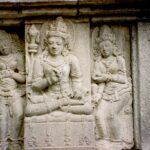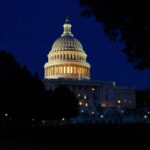Published: June 13, 2025

Disclaimer: This article is based on declassified government documents, academic research, and reputable journalism. It strictly covers verified historical events and distinguishes these from ongoing speculation.
Introduction
During the Cold War, the CIA launched Project MK‑Ultra, a top-secret program exploring mind control and interrogation techniques. Operational between 1953 and 1973, it inflicted extreme psychological and physical distress on unwitting participants. Despite official destruction of many records, declassified documents confirm unethical experiments—particularly with LSD and sensory deprivation. This article delves into MK‑Ultra’s origins, its documented Canada experiments, alleged global influence, and its ethical and cultural legacy.
1. Origins of MK‑Ultra: From Fear to Experimentation
1.1 Motivations & Beginnings
In April 1953, under Director Allen Dulles and chemist Sidney Gottlieb, the CIA created MK‑Ultra to develop psychological manipulation tools amid Cold War paranoia about Soviet brainwashing techniques. The program included over 140 subprojects targeting interrogation, behavior control, and chemicals like LSD (CIA’s internal records).
1.2 Experimental Methods & Ethics Violations
MK‑Ultra’s documented techniques included LSD, hypnosis, electroshock, sensory isolation, and psychological stress—often without informed consent. A 1973 memo by then-CIA Director Richard Helms ordered destruction of most records, complicating full historical reconstruction (1973 CIA memo destruction).
2. Documented Global Reach: The Canada Example
2.1 Allan Memorial Institute (Montreal)
At McGill University’s Allan Memorial Institute, Dr. Ewen Cameron conducted “psychic driving” experiments (1957‑1964): repeating taped messages to patients under drug‑induced coma, sensory deprivation, and electroshock—all funded covertly by the CIA (Allan Memorial Institute – CBC News).
2.2 Victim Consequences & Legal Outcomes
Survivors experienced memory loss, personality loss, and long-term mental harm. Canadian courts allowed compensation claims, leading to government restitution and later CIA settlements (Victim lawsuits – Montreal Gazette).
3. Indirect Global Influence & Alleged Expansion
3.1 Influence on Interrogation Practices
Some MK‑Ultra findings influenced the KUBARK Counterintelligence Interrogation Manual, noted for advocating coercive interrogation techniques (KUBARK Interrogation Manual).
3.2 Overseas Operations
Though no formal MK‑Ultra branches operated abroad, subprojects like MK‑Delta may have used similar methodologies in other nations, as implied by partial CIA disclosures (CIA reading room insights).
3.3 Evolution into Psychological Operations
MK‑Ultra informed later CIA psychological operations (PSYOPS) during Cold War conflicts—though public documentation remains indirect (Atlantic Council DFR Lab commentary).
4. Legacy: Ethics, Trust, and Cultural Resonance
4.1 Oversight & Public Awareness
The Church Committee reports (1975) exposed MK‑Ultra to Congress and the public, prompting major intelligence reforms (Church Committee’s reports).
4.2 Ethical Violations Acknowledged
MK‑Ultra’s non-consensual experiments violated human rights and medical ethics, influencing later legal frameworks on research consent.
4.3 Conspiracy and Misinformation
Ongoing conspiracy narratives claim MK‑Ultra-style mind control continues. However, documented evidence supports only historical occurrences, and no modern equivalent has been authenticated (Analysis on MK‑Ultra myths).
4.4 Pop Culture Echoes
MK‑Ultra has inspired numerous films and books—e.g., The Search for the Manchurian Candidate and The Sleep Room—raising awareness but often fictionalizing the facts (The Sleep Room on IMDb).
Conclusion
Project MK‑Ultra stands as one of the most troubling episodes in U.S. intelligence history—marked by profound ethical breaches and human harm. Its documented international presence, notably in Canada, and influence on covert methods highlight the importance of transparency, accountability, and ethical oversight in research and intelligence. Recognizing this history helps ensure future abuses are prevented.
About the Author
Sandeep is an investigative journalist and historian specializing in Cold War covert operations and intelligence ethics. Drawing from declassified CIA documents, Senate reports, and peer-reviewed research, he provides fact-based insights into previously hidden aspects of global intelligence programs.









